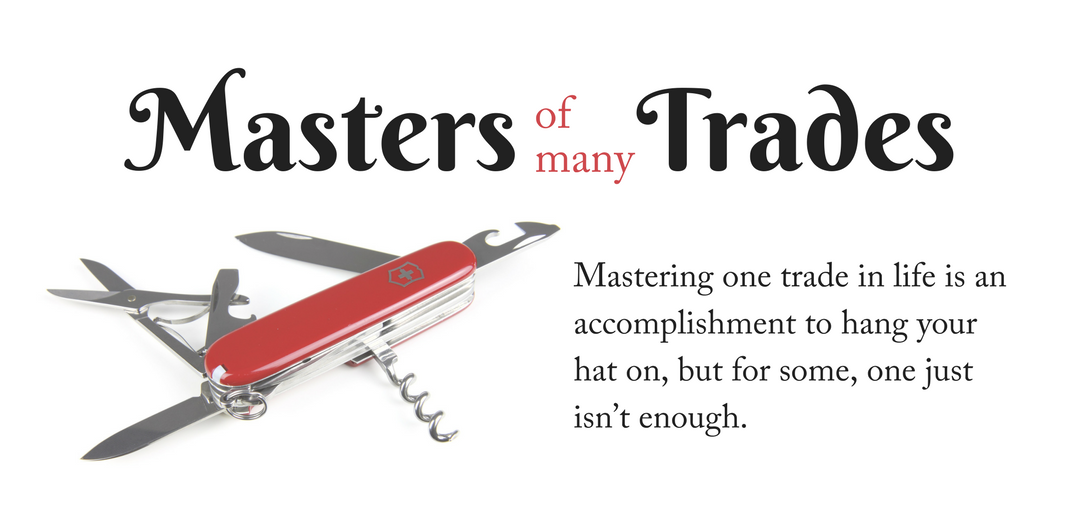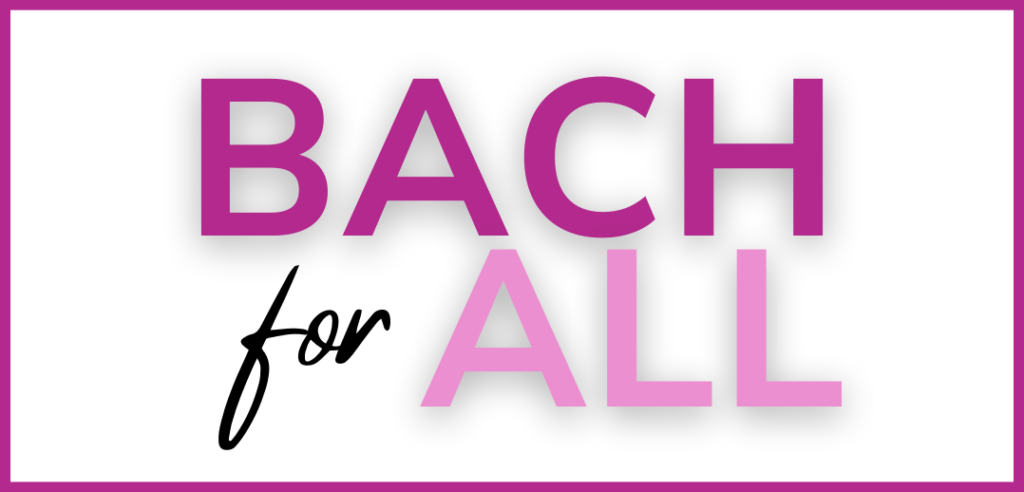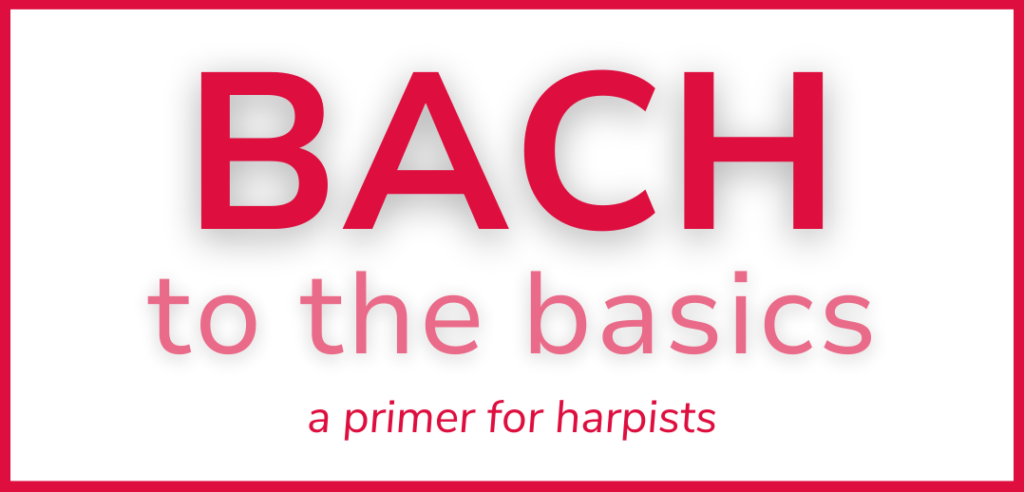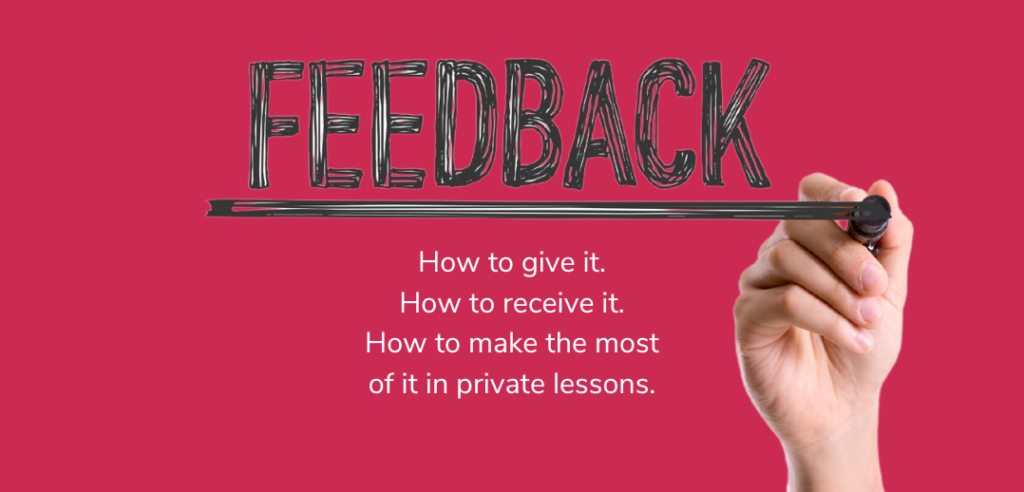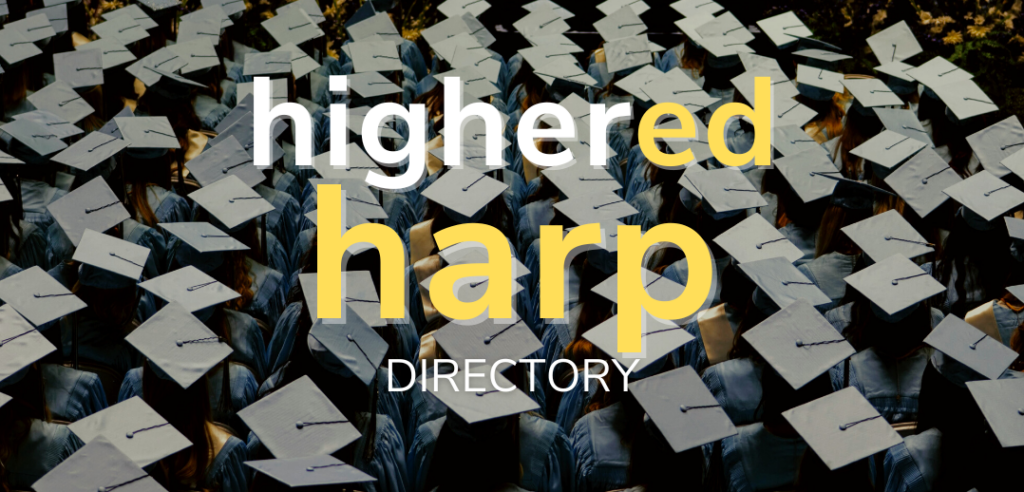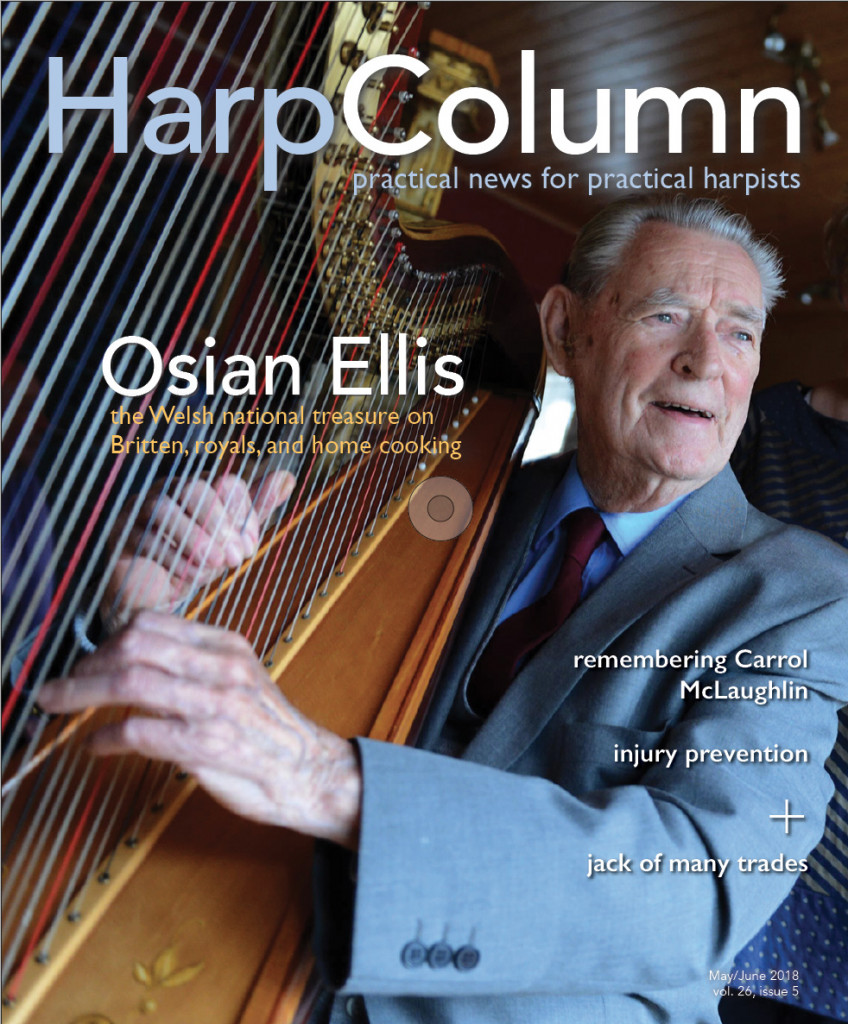What do Condoleezza Rice, Woody Allen, and Steve Martin have in common? These famous public figures are all highly trained musicians. More than merely dabbling in another field, there are people who achieve professional success in more than one field. How do they do it? And how do their skill sets interact between their two crafts?
Author Malcom Gladwell popularized the “10,000 hour rule” as the benchmark for becoming an expert in a discipline in his 2008 book Outliers. Some virtuosi musicians, though, don’t stop there. They go beyond the 10,000 hours it takes to master a musical instrument and challenge themselves to become experts in something new and completely unrelated. The motivating forces that drive them to explore new avenues are diverse, but the results are the same—these musicians are highly successful, motivated, curious, and creative individuals.

What inspired these artists to explore something new? Susan Mazer, a jazz harpist who toured with the great Ahmed Jamal and entertained for decades in prestigious West Coast hotels, including 14 years at Harrah’s Lake Tahoe, says, “It was clear that not only did I no longer want to play six nights a week, six hours a night, but my body did not want to do it either. I have always been interested in lots of things. When I was in college, I took one sociology course that so grabbed me, I could not take another lest I stop practicing. I have known for many years that the musical experience, whether as listener or performer, can be transformational. This was and is the core of what led me into healthcare—using music as environmental design.” Her vision of using music as a therapeutic tool drove Mazer, along with husband Dallas Smith, to found The C.A.R.E. Channel, an alternative to television that uses nature imagery and original music to provide relaxation programming in hospitals, residential care facilities, hospices, palliative care units, cancer centers, children’s hospitals, and rehabilitation centers throughout the United States.

“I have always wanted to be a pilot for as long as I wanted to be a harpist, it was just a passion that had to take a back seat for a while, growing up in Scotland where the weather is awful most of the time and flight training is prohibitively expensive,” says Louise Vickerman, principal harpist of the Utah Symphony. “It was a goal that was always in the back of my mind,” she says. “After I moved to Utah, got married, bought a house, and stopped moving from place to place, I saved up some money to start flight training. I found my instructor for my PPL [private pilot license] through the father of one of my students (a retired airline captain), started lessons, and had my ticket in six months. I was hooked. I’m currently a part owner in a Cessna 182 and only a few hours shy of hiring minimums for a Part 135 operator.” [A Part 135 operator is an operator of a business aircraft for hire, certified under the Federal Aviation Administration.]

Like Vickerman, Dickie Fleisher, principal harpist with the Naples (Fla.) Philharmonic, developed his multiple interests early in life. “I started my harp studies at age 10 with my grandmother Nettie Druzinsky, then with her son Edward Druzinsky in Chicago and at the University of Miami with Edward Vito. My father, being a concert pianist, started me in table tennis as it was the only sport his mother would let him play. One has to be careful with the fingers.” Today, Fleisher is a champion both on and off the concert stage, and is nationally ranked as one of the top 20 table tennis players in the country.
Others hear the call to expand their skills later in their careers. Blair Tindall, author of the novel Mozart in the Jungle (now a Golden Globe award-winning streaming television series on Amazon) was a successful oboist in New York before making the transition to author. Although it was a dramatic step, it worked out well for her. “Everyone, I mean everyone, thought I was insane to quit the Broadway production of Les Miserables to move 3,000 miles to study something else unprofitable. But within two days, I was subbing principal oboe in the San Francisco Symphony, and combining the two.”

Orit Gadiesh, chairman of the management consulting firm Bain & Company, coined the term “expert-generalist” as an alternative approach to the 10,000 hour rule. She describes an expert-generalist as “someone who has the ability and curiosity to master and collect expertise in many different disciplines, industries, skills, capabilities, countries, and topics, etc. He or she can then, without necessarily even realizing it, but often by design 1) Draw on that palette of diverse knowledge to recognize patterns and connect the dots across multiple areas, and 2) Drill deep to focus and perfect the thinking.”
Kerstin Allvin’s career path demonstrates the benefits of taking an expert-generalist approach. She became a certified yoga practitioner after decades as a successful concert harpist and educator. Allvin doesn’t see being a harpist and yoga instructor as an either/or proposition. “I don’t consider seeking yoga/meditation certifications and teaching as changing direction. I feel it’s all connected. I never stopped one aspect of my vocation to advance another. But if there is a ‘reason’ [to pursue a second vocation], then it was, at the beginning, to become a better musician and harpist and to enhance the experience of both.”

harpist and certified yoga
practitioner
Tindall agrees that her musical background had a positive impact on her writing career. “Sure, musicians can be late…once. Ha! [Because of my training as a musician] I am always on time and fulfill my commitments, essential for journalists on deadline,” she notes. “Another asset is that musicians have incredible skills of observation and wordlessly meshing with others. Onstage, you must detect and interact signals from your fellow players—both the Orpheus Chamber Orchestra and conductor Roger Nierenberg do corporate seminars demonstrating how people intuitively work together. Also, we don’t realize how strongly our [musical] training influences form and proportion in creating anything from writing to art, or even interior decorating or architecture.”

Violinist Kristin Van Ausdal spent years commuting on I-80 as a first-call sub for both the Cleveland and Detroit Symphony Orchestras before deciding to put the brakes on music to pursue an interest in public policy. She believes that the drive for excellence she developed as a musician suited her well for her international career as a support specialist in data analytics for McKinsey and Company, one of the top management consulting firms in the world. “I’m at my best when I’m leveraging my expertise in something. I had spent most of my life becoming an expert at playing the violin. When I came to McKinsey, I realized that I really enjoy being an expert. So now I have an internal role at McKinsey Analytics supporting data scientists around the world. I was comfortable with manipulating data science, and found it to be like practicing. Like many musicians in the practice room, data scientists spend a lot of time by themselves, they can be a little quieter, introverted, and focused on the task at hand.”
Vickerman emphasized that not only do musicians pursue excellence alone in the practice room, but they also are accustomed to working in teams. “Whereas the audience member only sees the musicians and conductor, a successful performance depends on so much more—stage and sound crews, music librarians, personnel and artistic managers, marketing and development staff. The same can be said for aviation, it’s the definition of teamwork. Passengers just see the pilots and cabin crew, but an airplane would not get off the ground if it were not for the mechanics, line crew, air traffic controllers, and dispatchers, to name just a few.”

and professional vocalist and harpist
Jane Moyer, founder of New Century Leadership is a talent developer with 25 years of experience in executive level management at Home Box Office (HBO). In her book Leaders Lab: 66 Ways to Develop Your Skill, Strategy and Style, she states that today’s number one success skill is learning. “Entire careers have come and gone in the past few decades, as industries such as manufacturing, publishing, travel, entertainment, and more have been turned upside down by new technologies. The question is not IF things will change, but how they will change. Learning not only increases your productivity and earning potential, but makes you more marketable.” Moyer, also a harpist, is yet another creative individual who branched out from music into a new field, having received a degree in vocal performance before rising to top-level management in communications at HBO.
Noting that her harp and yoga practices are similar in that they both take years of study and contemplation, Allvin adds that yoga has benefited her as a harpist. “Learning to teach yoga and meditation required me to be very articulate, clear, precise, to use right speech and creative language,” she says. “These skills enhanced my harp teaching as well. Some skills were attained by yoga and meditation at an inward level that developed through both the teaching of the concepts and the practice itself. For example; concentration, focus, letting go, deeper musical meaning, confidence, and connection to self and to higher purpose. And then some were more external and obvious—physical strength, stamina, endurance, posture, technique, public speaking, the ability to discern subtleties in sound, production, color, musical structure, function, and gesture. There is also the teaching of practical skills as well as the articulation of difficult concepts and use of abstract thinking.”
Deliberate Practice
Not all practice is created equal. Anyone who has caught themselves daydreaming about where to go for dinner while they play through their etudes on autopilot knows this to be true. So in 1992, when Swedish psychologist K. Anders Ericsson published his ground-breaking research on the role of deliberate practice in achieving superior performance in music, memory, and athletics, it revolutionized the field of music education. Ericsson defines deliberate practice just as a harp teacher might—not mindless repetition, but practice with a focused attention on improvement, with immediate feedback and guidance from a mentor, that breaks down large passages of music into smaller attainable goals (referred to as chunking), and that is a sustained effort over a long period of time to develop new skills and expand the reach of skills already acquired. Whew, that’s a mouthful. In a nutshell, you gotta focus. Ericsson’s research led to an almost giddy response, including coining the phrase “the 10,000 hour rule” by Malcolm Gladwell in his 2008 book Outliers: The Story of Success, where Gladwell theorized that the key to becoming an expert at almost anything was through practicing the correct way for 10,000 hours.
Fleisher agrees. “Playing the harp and table tennis well both require focus, quick reflexes, and good physical condition. Playing a week of operas or ballets can be as tough as any double elimination tournament.”
Vickerman also thinks that there are ways in which her aviation skills have benefited her harp playing. “I have gained a lot more confidence in my playing after having gone through so much training for all my various ratings. There’s a saying in aviation that ‘any landing you can walk away from is a good one.’ There have been nerve-racking moments along the way, as any pilot can attest to, but after having experienced such things, concert nerves seem insignificant in comparison.” She humorously adds, “The one thing I find slightly easier is that there are only two pedals in an airplane as opposed to seven on the harp.”
Author and researcher Scott Barry Kaufman observes in his Scientific American blog that the principles of deliberate practice, which work well for mastering a musical instrument or an athletic skill, do not work nearly as well for other creative endeavors. While instrumental mastery requires consistently replicable behavior, creative endeavors require originality and the ability to surpass and stretch beyond what has previously been accomplished. Like playing the stock market, creatives don’t know in advance if their creation will be a success, because the process is often messy and filled with fits and starts. In fact, too much expertise and over-training can be a detriment, which is why Kaufman suggests that it is better to cross-train and use outside influences to benefit the creative process. “Creators are not mere experts. Creativity does draw on a deep knowledge base, and deliberate practice can certainly contribute to many aspects of creativity, but ultimately creativity involves much more than just deliberate practice. Creators are not necessarily the most efficient, but their messy minds and messy processes often allow them to see things others have never seen, and to create new paths that future generations will deliberately practice.”
Indeed, the creative musicians interviewed for this article have seen potential where others didn’t, and connected the dots to forge new paths for future generations. Mazer and Smith founded The C.A.R.E. Channel in 1992. Until then, no relaxation programming had been produced specifically for patient television. Today, The C.A.R.E. Channel is available in more than 1,000 facilities worldwide.
Vickerman is a founding member of The Flying Musicians Association, a non-profit for pilots who are also musicians. “The skills required to play an instrument and fly an airplane have remarkable similarities, from precision and multitasking to listening, fine motor skills and the dedication needed to practice and perfect one’s skills in the air as well as in the practice room. By educating others about these common attributes, we hope to encourage both.”
And Tindall has created new audiences for classical music through her book Mozart In the Jungle and the Amazon web series that followed. “I think [Mozart In the Jungle] has had a profoundly positive effect on classical music. Not only has it hired over 600 musicians (and thousands of others in crew, acting, food/hospitality, and transportation), it’s had a couple of other effects. One is that the way concerts are presented become less threatening to potential audiences who think they don’t know enough. Also, some former musicians dust off their clarinets in the attic and get involved in amateur music. And finally, people watching a funny soap opera about people they previously thought were stuffy get a big dose of music and realize it stirs them and they want more.”
To learn new skills, Moyer advises writing down your goals. “Use two timeframes: one long-term, to give you something big and inspiring to work toward; and one near-term to give you something very concrete to accomplish on the way to that greater goal. Talent development is a constant process. Challenge yourself to take a step out of your comfort zone, instead of waiting until everything’s perfect. Plan to spend at least 25 percent of your time each year taking on new challenges and learning. Take charge of your future and learn to learn.”
Steve Jobs once said, “Creativity is just connecting things. When you ask creative people how they did something, they feel a little guilty because they didn’t really do it, they just saw something. It seemed obvious to them after a while. That’s because they were able to connect experiences they’ve had and synthesize new things.” Allvin finds learning new things almost a calling to a higher purpose. As she says, “You become a greater human being. Experiences of lifelong learning expand an individual with higher thoughts, emotions, and experiences, making room for us to become more loving, compassionate, inclusive teachers and nurturers. The higher our capacity to gain knowledge, the higher our potential and the higher our service to community and planet.”
While true that 10,000 hours of deliberate, focused practice is an effective method of becoming an expert on a musical instrument, for some creatives, that’s just the first step toward an ongoing quest to learn. Motivated and curious, they seek out ideas and challenges, paving the way for new endeavors to enter their lives. They welcome the messy process of creating order through connecting the dots from a multitude of influences. In short, they are lifelong learners.
The takeaway is that both approaches are sound. If your goal is to become a full-time principal harpist with a top tier symphony orchestra, then start logging in those practice hours now. But the 21st century has already astonished and amazed us with advances that were unthinkable just 20 years ago. The future is bright for those with creativity, discipline, and imagination. Maybe you will be the little genius who invents a best-selling new app, provides an indispensable service, or creates some other original perspective to guide society. Just don’t forget to credit your harp lessons. •





